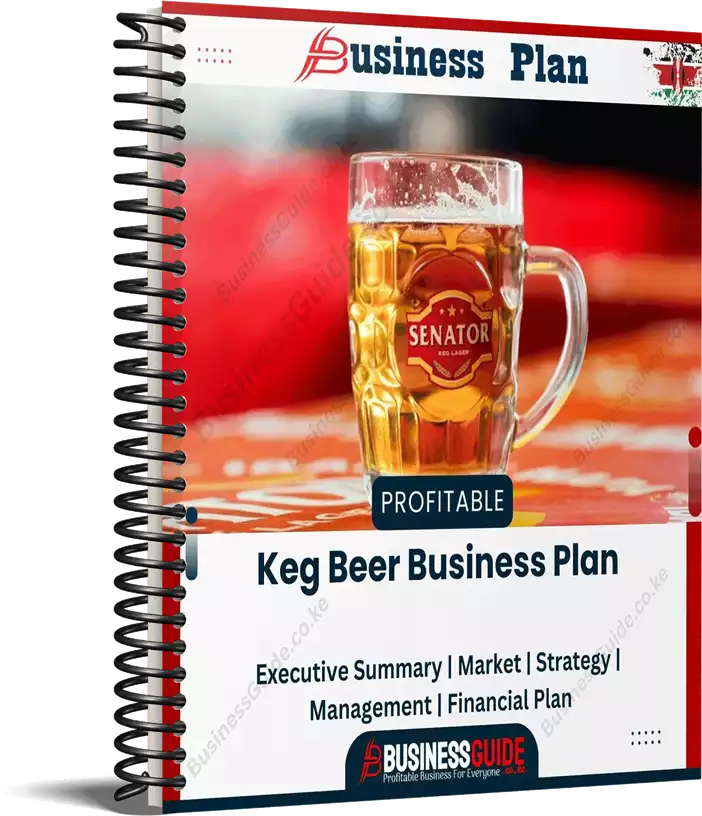Launch Your Keg Beer Business with Our Comprehensive Business Plan PDF for Kenya!
Are you interested in starting a keg beer business in Kenya? Our Keg Beer Business Plan PDF is meticulously crafted to guide you through every critical step in establishing and managing a successful keg beer venture in a vibrant market.
Why Choose Our Business Plan?
Thoroughly Detailed: This business plan encompasses all essential aspects necessary for the success and growth of your keg beer business.
What You Will Receive: The Keg Beer Business Plan includes key sections such as:
- Executive Summary: A concise overview of your keg beer business, including your mission statement, vision, and unique selling propositions.
- Business Description: Insights into the beer industry in Kenya, covering current trends, customer demographics, and competitive analysis.
- Market Analysis: A thorough examination of your target market, detailing customer preferences, demand for keg beer, and consumption trends.
- Operational Plan: Step-by-step guidance on setting up your keg beer business, including production processes, sourcing ingredients, and distribution logistics.
- Marketing Strategy: Effective marketing tactics to promote your keg beer, focusing on branding, partnerships, events, and social media engagement.
- Financial Projections: Detailed financial forecasts covering startup costs, revenue projections, operating expenses, and break-even analysis.
Why Start a Keg Beer Business? With the growing social scene and increasing demand for craft beer experiences in Kenya, launching a keg beer business represents a significant opportunity for profitability and community engagement.
Take the First Step! The Keg Beer Business Plan PDF for Kenya provides the insights and resources you need to successfully launch and grow your keg beer business.
Download Now! Access our Keg Beer Business Plan PDF for Kenya today and kickstart your journey towards establishing a successful keg beer business!
The Keg Beer Business Plan PDF includes an executive summary, business description, market analysis, operational plan, marketing strategy, and financial projections.
You can source ingredients such as malt, hops, and yeast from local suppliers or international distributors specializing in brewing products.
You will need to obtain the necessary licenses, permits, and comply with health, safety, and alcoholic beverage regulations enforced by local authorities.
Implement strict quality control measures, from sourcing ingredients to final product testing, to maintain high standards of quality.
Leverage social media campaigns, sponsor local events, partner with bars and restaurants, and offer tastings to promote your keg beer products.
Initial costs may include equipment purchases, raw materials, licensing fees, facility rental, and marketing expenses.
Consider expanding your product range, targeting different customer segments, and leveraging online sales platforms for wider reach.
Use inventory management software to track keg levels, monitor usage, and streamline replenishment processes.
Excellent customer service can foster customer loyalty and encourage repeat business, contributing to long-term success.
Follow industry publications, attend brewing expos, and engage with brewing communities online to stay informed.

